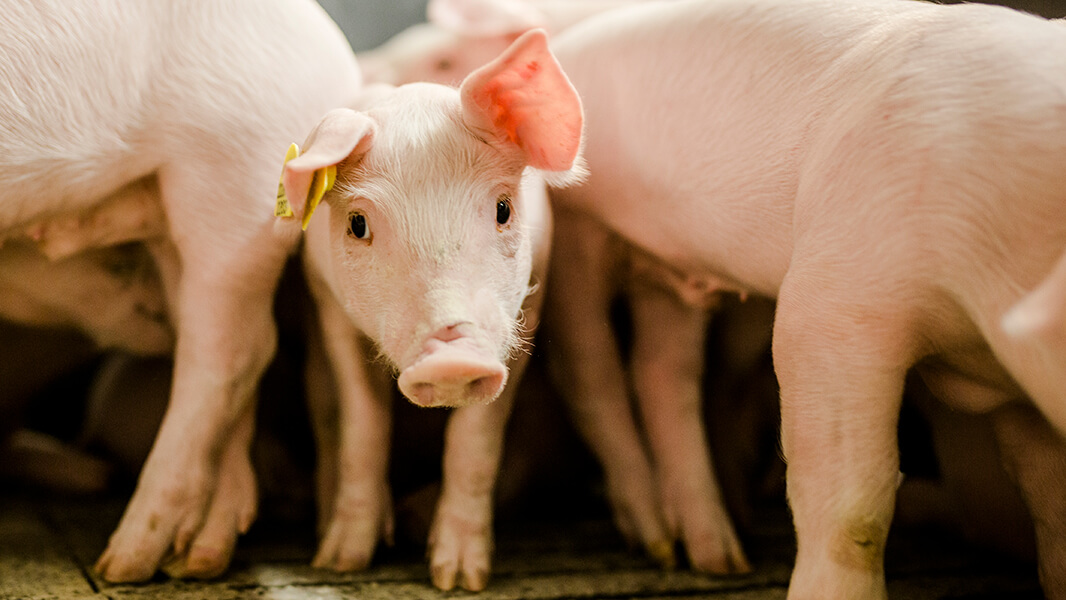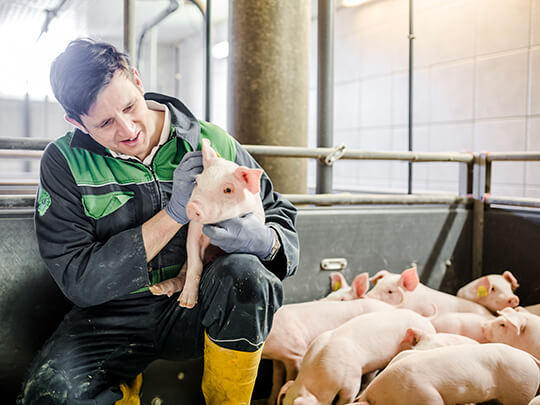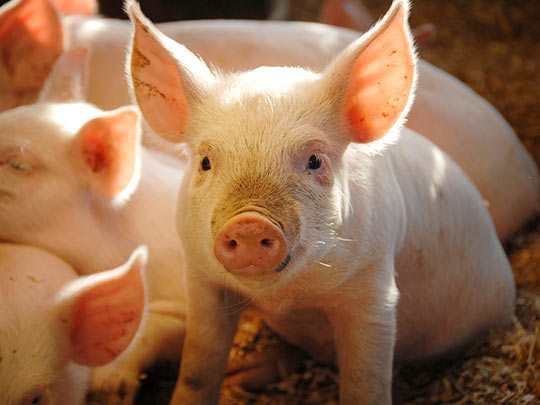
Post-weaning support
Weaning is a stressful period for young piglets: at weaning and during the first 10-14 days post weaning, piglets face major challenges. It’s a race against time: the piglet is separated from its mother, placed into a new environment with new pen mates and feed is presented in dry form.
At the same time, its digestive tract and immune system are not sufficiently developed yet to cope with all these changes. This often results in loss of appetite and, consequently, a reduced feed and nutrient intake. In particular, reduced feed intake - one of the main post-weaning challenges in piglets - is seen as a precursor to intestinal imbalances.

Maintaining gut health is the key to success
In the development of the intestinal tract of piglets, a distinction can be made between the phase immediately after birth and after about 3-6 weeks. While in the first phase the intake of colostrum is essential for the protection, growth and maturation of the intestine, the post weaning period is the time when right nutrition needs to support optimal gut development. The aim here must be to ensure high feed intake through tasty and highly digestible feed to meet the piglet's energy needs, support microbiota and ensure the development of normal gut health post weaning.

Fresta™ Protect – support your piglets during the post-weaning phase
To protect young piglets when and where it matters, solutions must start with gut resilience. Fresta™ Protect, a phytogenic solution specifically designed to meet the needs of your piglets during the post-weaning period. The tasty formula supports feed intake, digestibility, and support to maintain a healthy gut during the post-weaning period.
You want to find out more about other Challenges & Solutions?
Some products are only approved for use in certain geographies, end uses, and/or at certain usage levels. It is the customer's responsibility to determine, for a particular geography, that (i) the product, its use and usage levels; (ii) the customer's product and its use; and (iii) any claims made about the customer's product, all comply with applicable laws and regulations. *Any references to “natural/naturally” are as defined by www.aafco.org. Any references to “feed additive(s)” are as per the laws and regulations in the United States. For product registration information, please refer to the product data sheets.
Get in contact

Megan Koppen
RTM Poultry, Sales Group North America
Phone:
+1 (630) 731-0250
e-mail:
Megan_Koppen@cargill.com